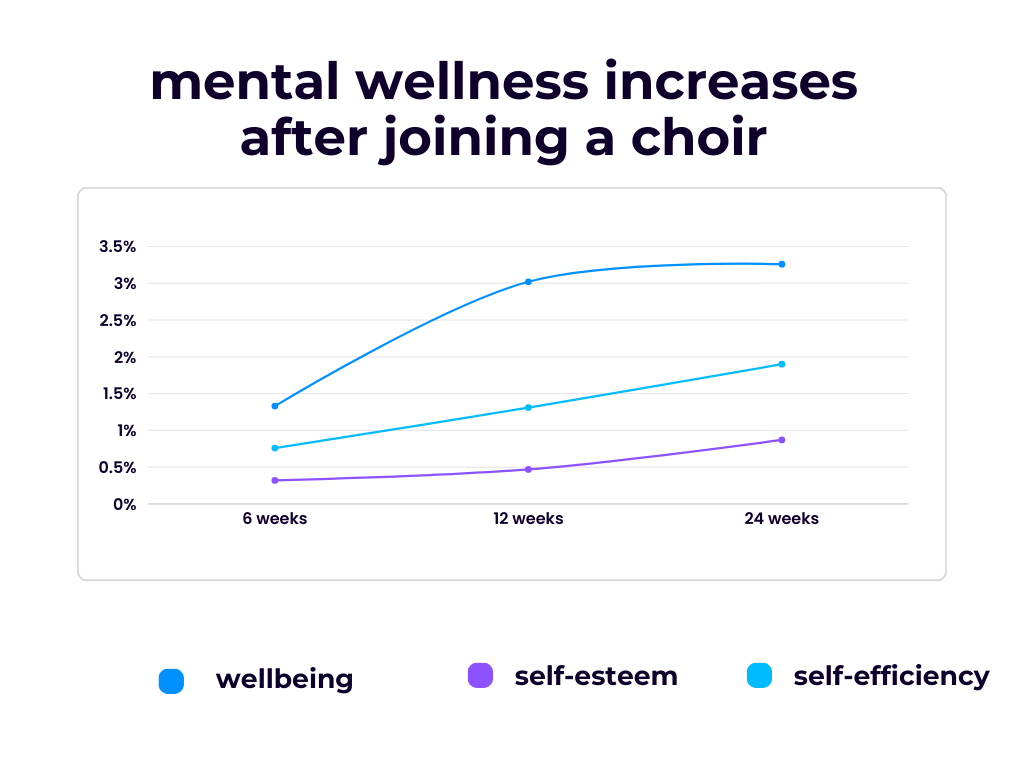Choral societies have been filling the hearts of the British public for as long as anyone can remember, with many established choirs dating back to the 1800s.
Throughout the decades, choral societies have brought joy, community spirit and peace to people across the UK.
With more than 1,300 registered societies across the UK and 59 based in London, there is something available to everyone.
What is a choral society?
A choral society is a musical ensemble or group which is predominantly made up of singing voices with an accompanied piano and is otherwise known as a choir.
Participating in a choir presents a myriad of benefits which extend beyond the joy of making music.
Choirs have been linked to offering numerous mental health benefits such as reducing anxiety, depression or even just the blues.
Sing Up Foundation, a charity dedicated to helping children and young people improve their mental health and wellbeing through singing, suggested that singing can lower cortisol (stress hormone) and boost confidence.
The foundation provides resources, training and guidance to support schools, children and young people to deepen their understanding of music and the impact of singing.
Celi Barberia, head of Sing Up Foundation, said: “Time and again, research has proved the impact that singing can have on health and wellbeing.”
A study by Theresa Wiseman, Saoirse Finn, Katey Warran, Daisy Fancourt in association with The Royal Marsden National Health Service Trust in Greater London which was conducted in 2019 looked at how joining a choir affected mental health conditions of those working as cancer caregivers.
During the 12-week experiment, the study found that participants in the choir group experienced greater increases in self-esteem, wellbeing and self-efficiency over time.

In the group of 62 participants the study showed that in the first six weeks, there was no change in any of the levels of mental wellness for the group participating in the choir, however at 12 weeks, wellbeing increased by 3.02% and increased further to 3.26% after 24 weeks.
There were increases in self-efficacy within the choir group showing a 1.31% rise after 12 weeks and 1.90% after 24 weeks.
As for self-esteem, the study found that after 12 weeks, it rose marginally to 0.47% and 0.87% after 24 weeks.
After the first 12 weeks in the choir, participants were able to choose whether they continued with weekly choir sessions.
While 19 participants (58%) chose to leave, the remaining 42% continued attending.
In conclusion to the study, the researchers said: “Given that singing can be provided as a community activity free from the stigma that sometimes surrounds engagement with more formal support services, it could be promoted to support the mental health and well-being of cancer caregivers.”
One of the most compelling aspects of choral societies is the strong sense of community it cultivates and the sense of belonging within them.
Members often form lasting friendships and families beyond their own.
Beyond the musical aspect, being part of a collective effort to create music can forge strong bonds with fellow choir members, creating a supportive and collaborative environment.
This can be said for the Barnet Choral Society which was formed in 1940.
Its chair Shelagh Cohen was voted in at the January 2022 AGM.
When the choir was founded, there was a distinct lack of men and people due to the war, Cohen explained.
“It was quite a difficult time to start up something,” she said.
“But they started it to give people something enjoyable and to get away from what was going on in the world. It thrived and went from strength to strength.”
Cohen has sung since school and said that she felt very lucky to have had music throughout her life.
“It’s beautiful, making music with other people, it’s a fantastic feeling when you’re all singing together, all pulling together,” she said.
“Of course, it’s extremely good for mental health and that has now been acknowledged by the medical profession.
“Certainly, when I was working, if I’d had the most atrocious day at work, I would come home, put dinner on the table and think I don’t want to go out, but I get here and 10 minutes later, the troubles of the day are completely gone.”





